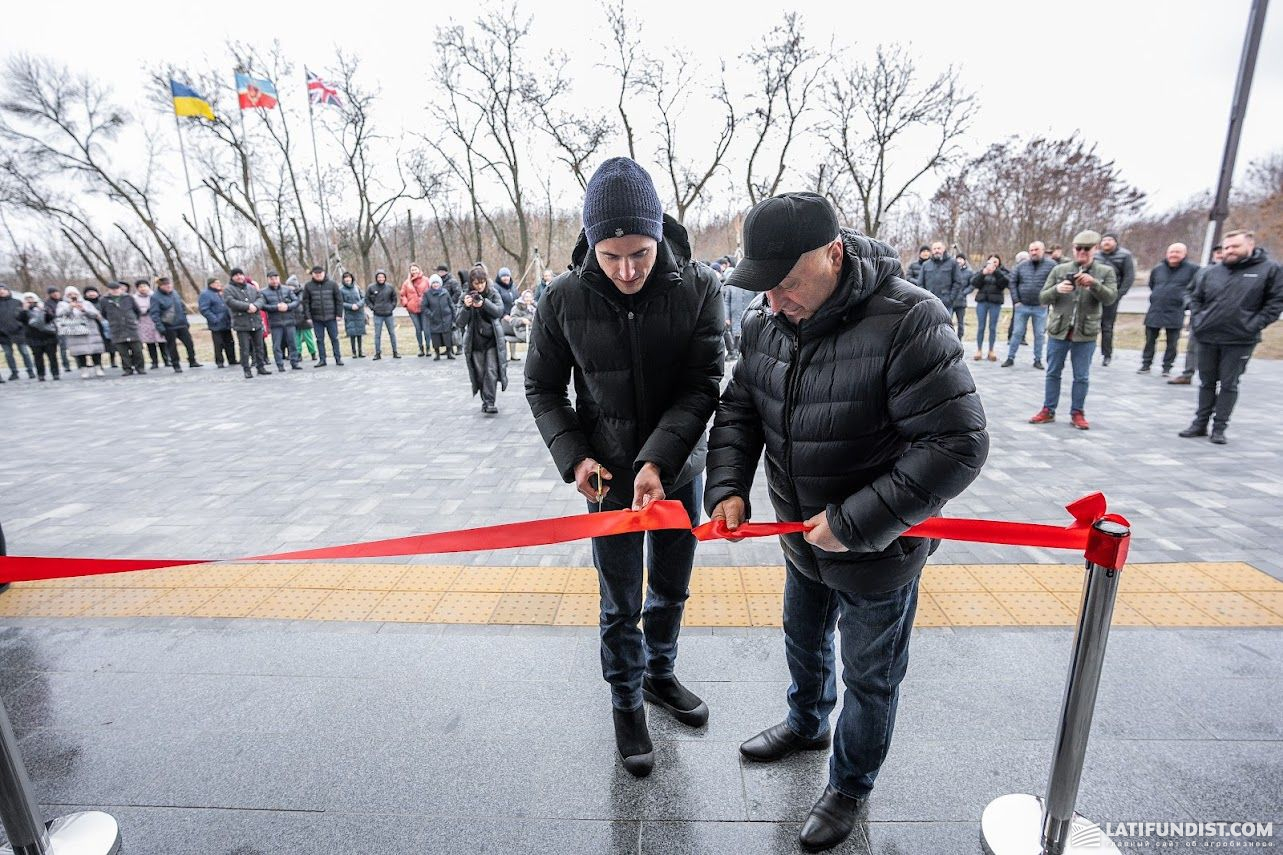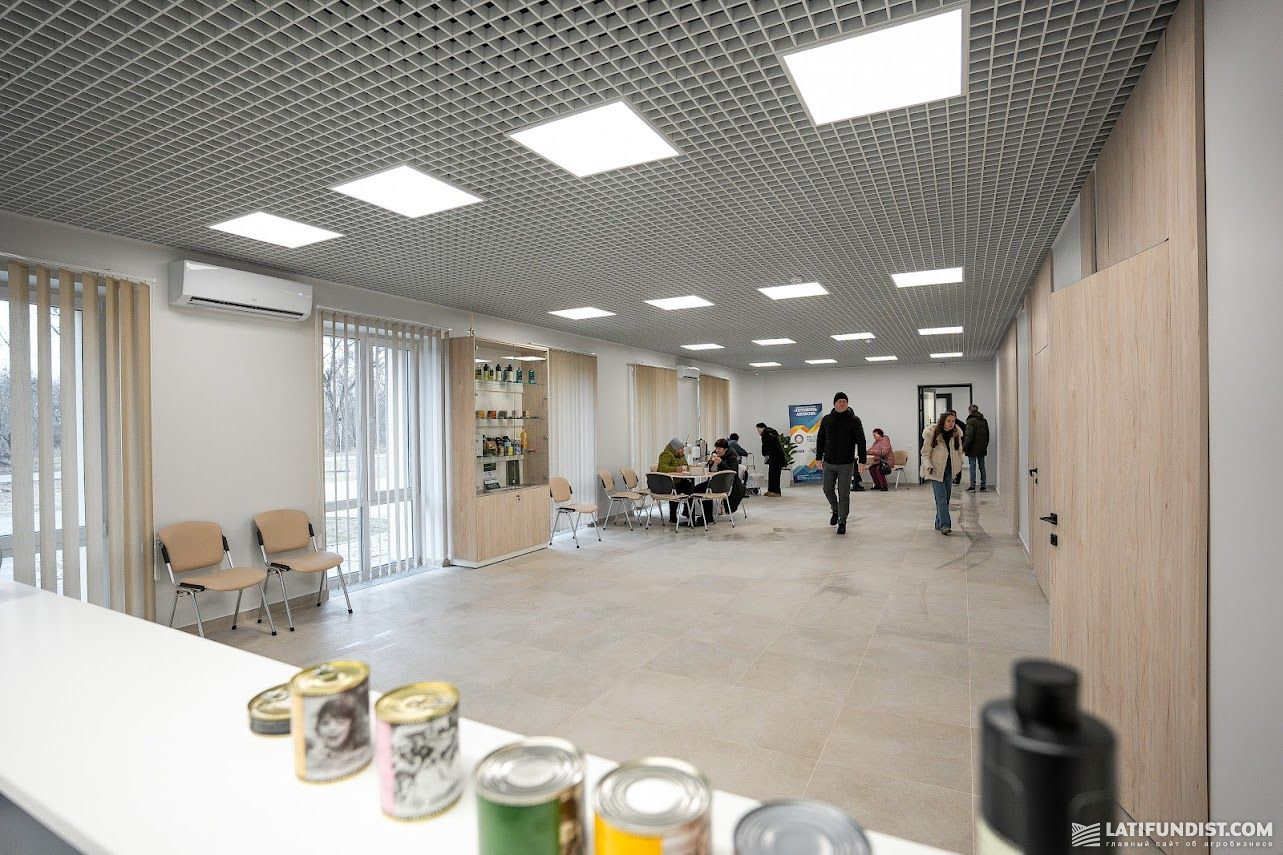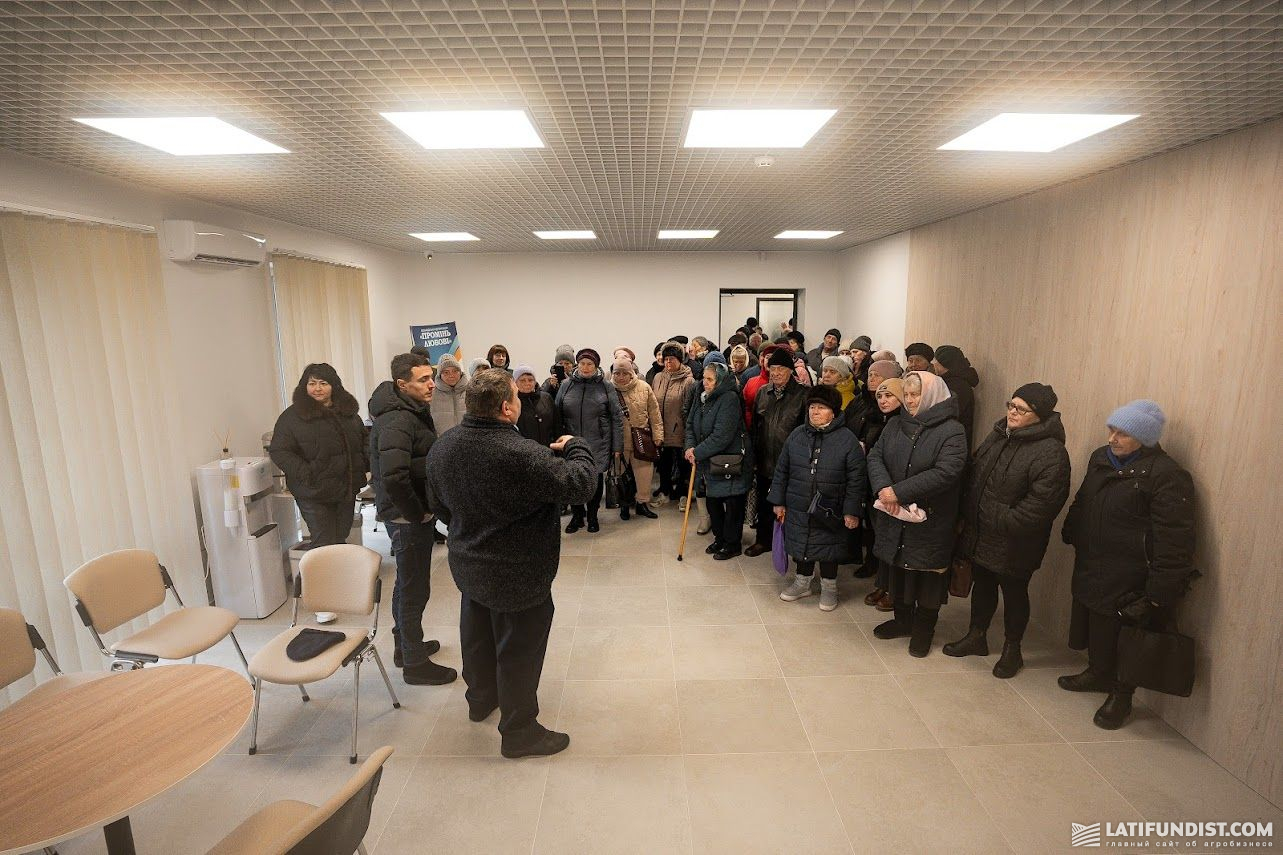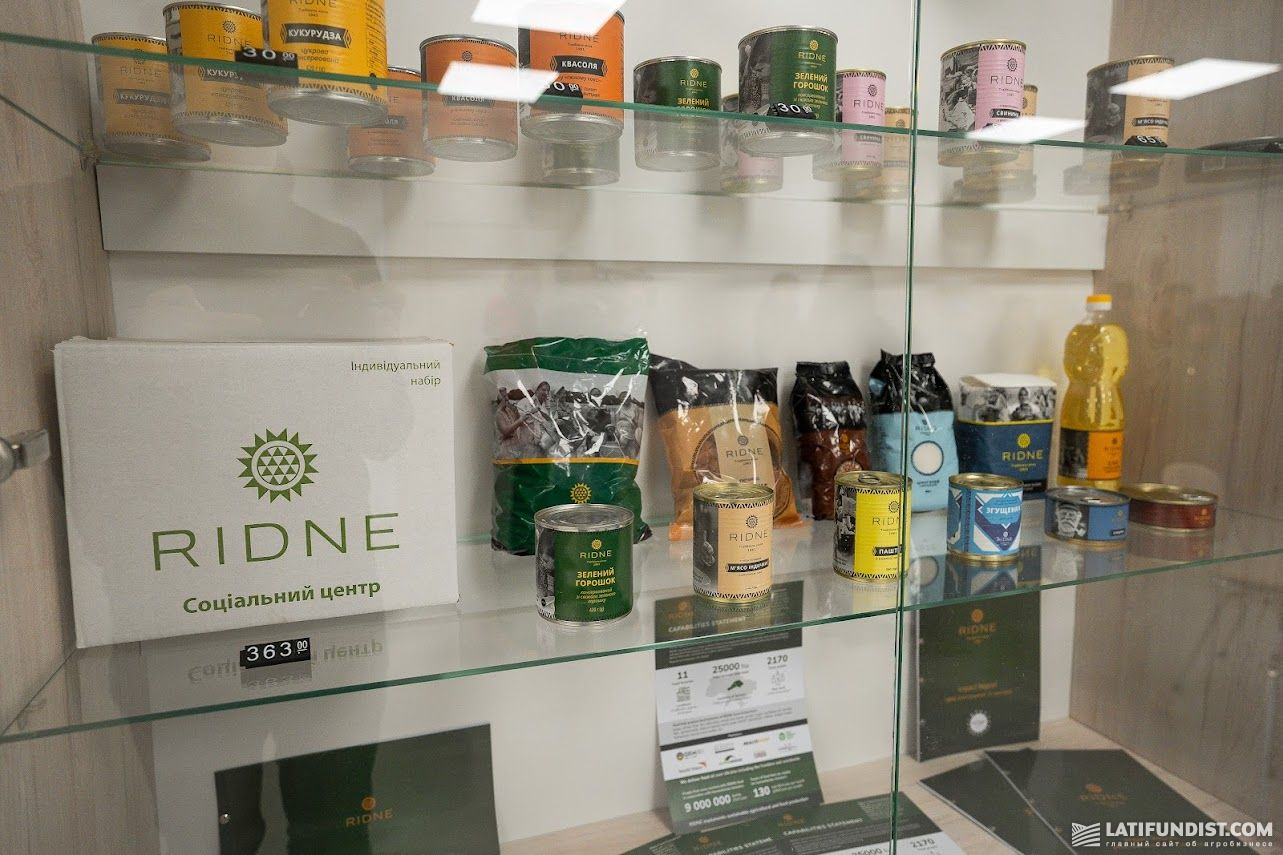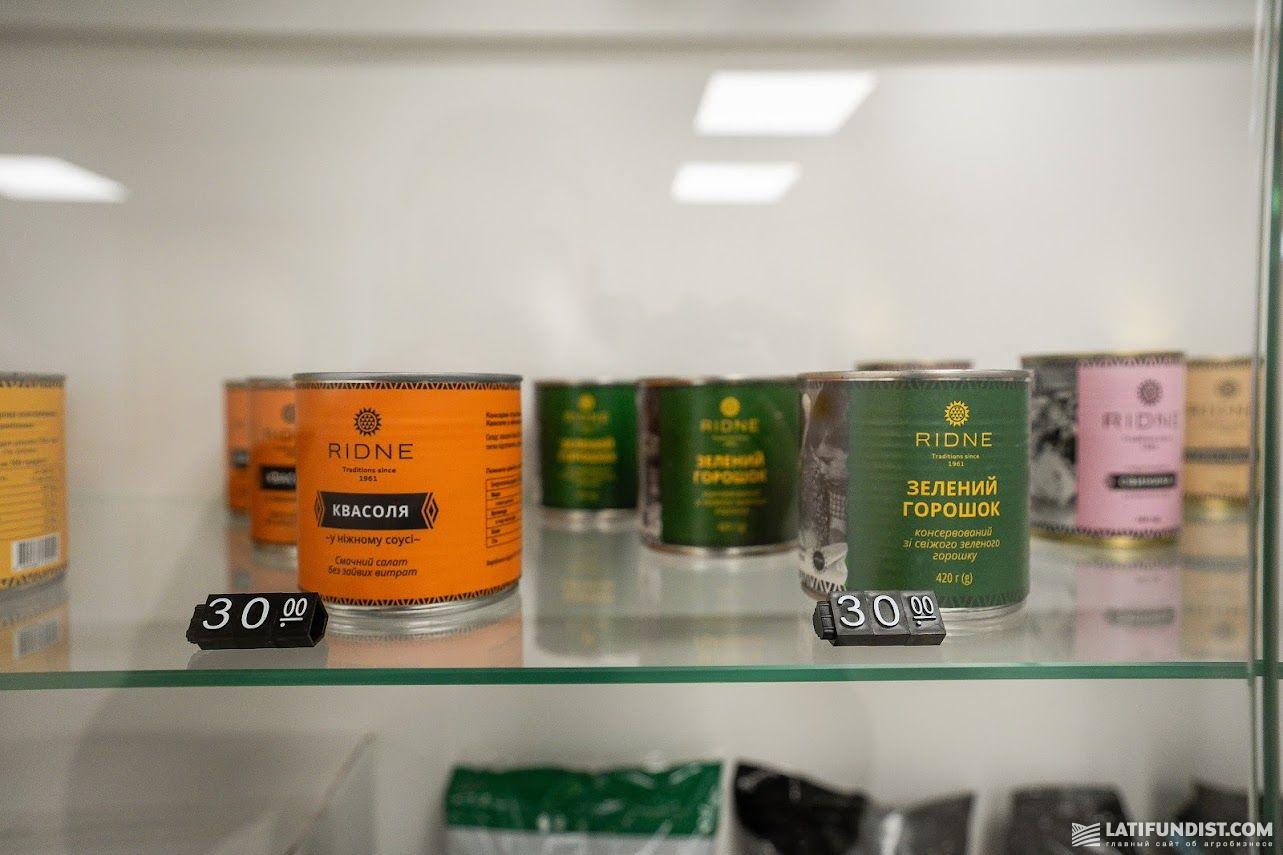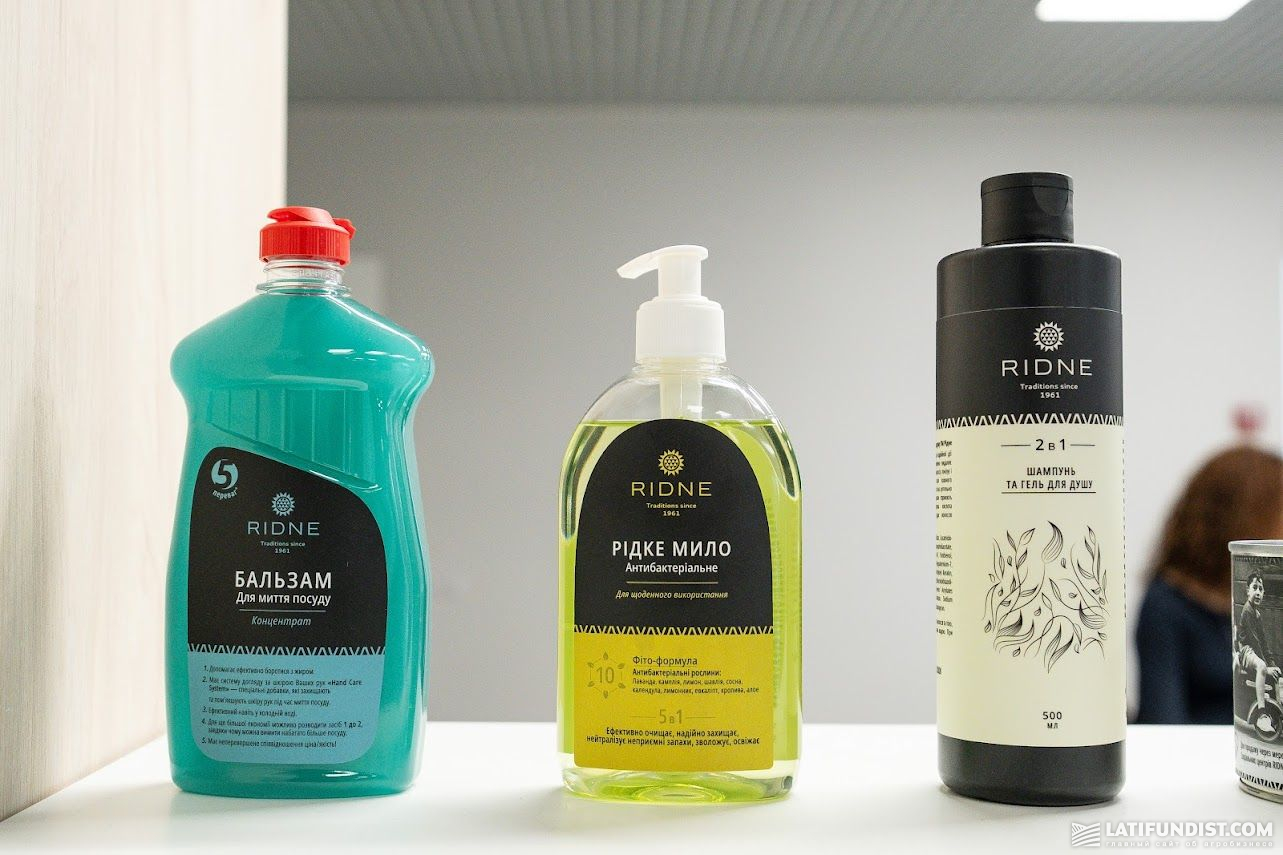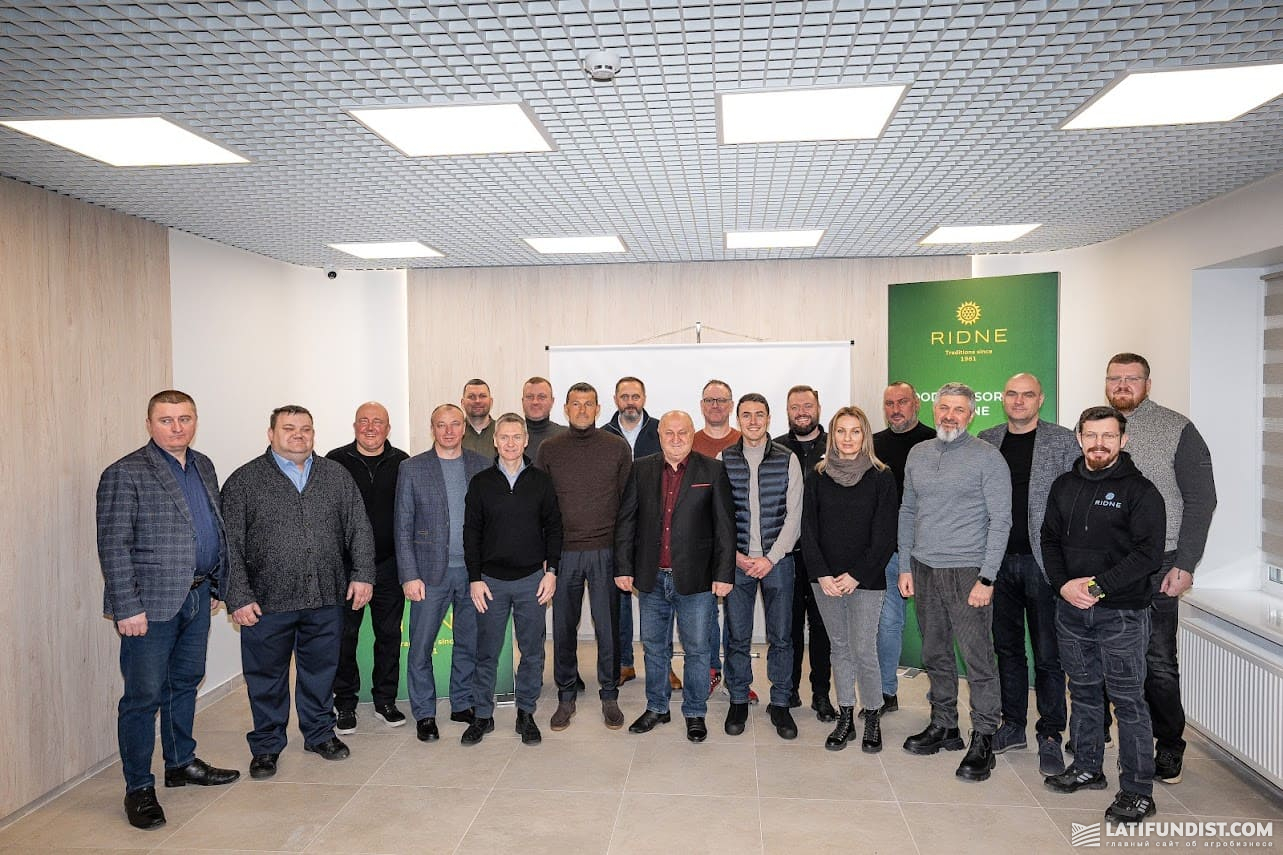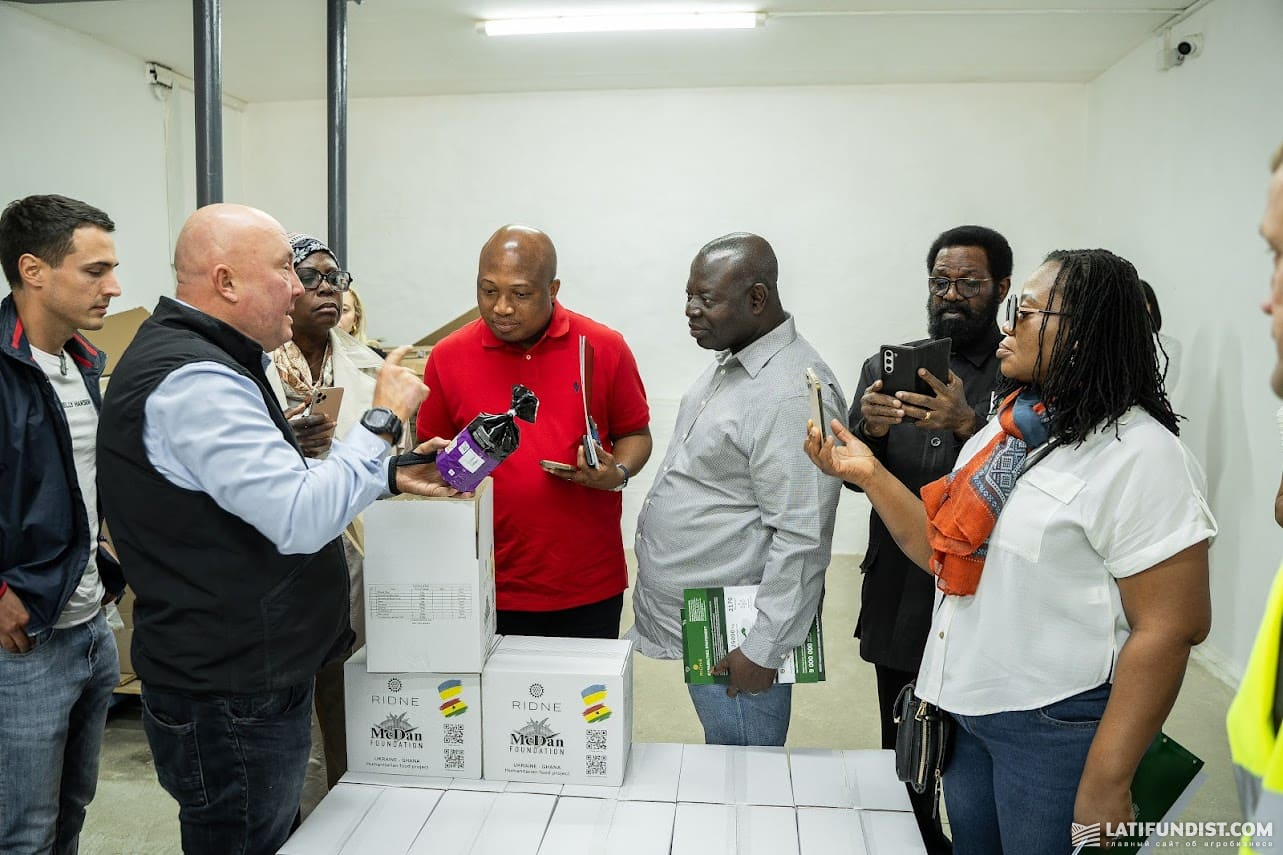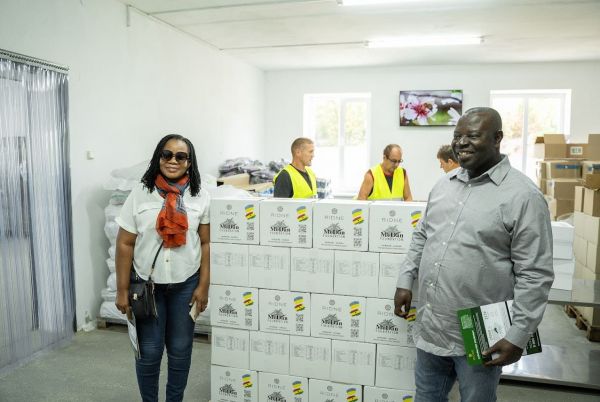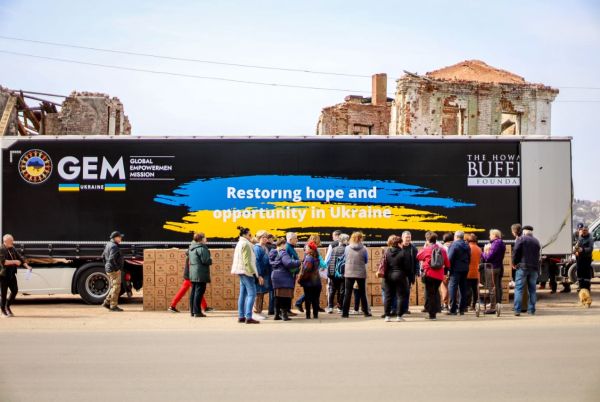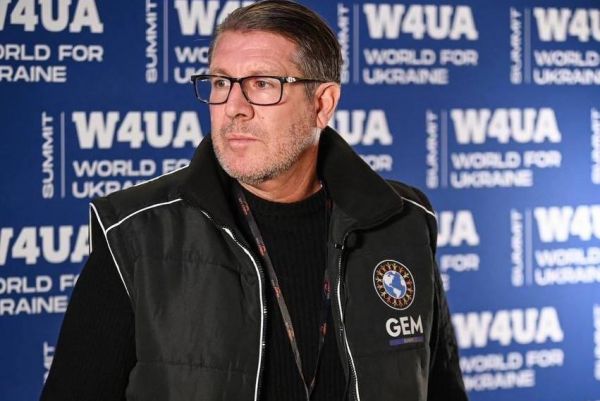Barley From Farmers, Flour From Mills, Kits for Foundations and Now Food for Communities: How RIDNE Redefines Humanitarian Aid
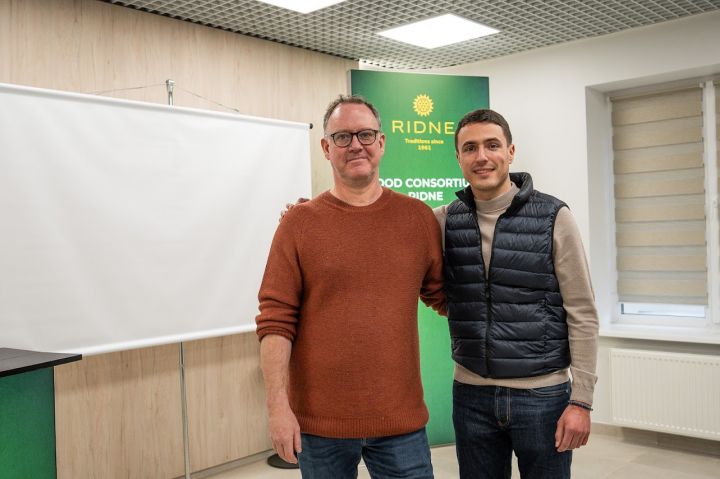
Photo by: Latifundist.com
The Grocery Products Factory produces cereals, a farmer in Cherkasy region grows oats, and the GEM Humanitarian Foundation in partnership with The Howard G. Buffett Foundation helps people in the frontline areas. RIDNE produces products for international humanitarian organisations for three years now. The established ecosystem now includes 11 processors and 25 farmers. Recently, a social centre joined the ecosystem, where socially vulnerable groups can buy food at subsidised prices, 30-50% below other retailers' prices. Our special report from Zhytomyr region describes how it works.
From fertiliser to food production
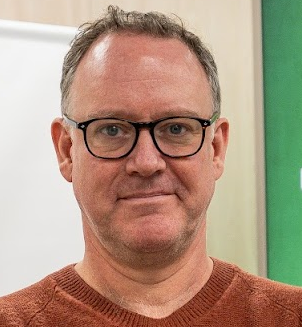
Mike Penrose
“Ukraine is a self-sufficient country in terms of manufacturing and has a lot to offer the world.”
We speak to an expert whose 30 years of experience in the humanitarian sector have seen him work in some of the world's hottest spots. His career profile includes positions as Executive Director of UNICEF UK, CEO of Action Against Hunger, and Head of Save the Children UK. We are in Korosten, Zhytomyr region, where Mike has come from London for the opening of the RIDNE Social Centre.
We wrote about how this consortium was born eighteen months ago. This is a story about the ‘Ukrainian dream’ when a nitrogen stabiliser supplier in the first year of full-scale war created the country's largest consortium of food aid producers under one roof. Products under the RIDNE brand were supplied to international humanitarian foundations such as the Global Empowerment Mission (GEM) in cooperation with The Howard G. Buffett Foundation.
Learn more: Iva Rove Ukraine (Inc.): How the War Turned an Importer of American Fertilisers into the Creator of the Largest Consortium of Humanitarian Aid Producers
They started with 2-3 thousand food kits per month. Today, 130 truckloads of food are delivered to GEM alone per month, from which 230,000 kits are assembled. In total, GEM in cooperation with the HGBF has delivered 4.2 million food kits to the frontline areas in Ukraine.
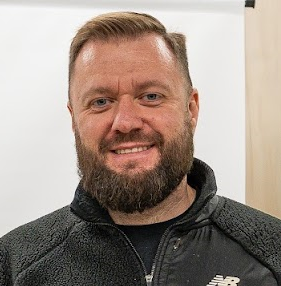
Andriy Negrych
"Why RIDNE and not a large monopolist or a well-known brand? Because during the war, small and medium-sized agricultural producers suffer the most. It is a challenge for them to survive and they need support," recalls Andriy Negrych, director of GEM Ukraine.
But let's get back to our interlocutor from the UK.
When humanitarian aid is not just about fighting hunger
“Do you know what the biggest problem with traditional humanitarian aid is?” asks Mike. It can temporarily alleviate hunger, but it doesn't offer long-term solutions. What's more, it often undermines local economies, as large foundations buy food from multinationals rather than local producers.

Mike Penrose
"The perfect scenario is when people have jobs, a stable income and afford to buy food on their own. But if we look at Ukraine as a specific case, even after the war is over and donors' efforts are waning, social problems remain. That is why I am impressed by the approach taken by RIDNE together with international partners such as GEM. The consortium involves local farmers and producers in the process and an international fund purchases products from them. This creates a closed cycle: producers pay taxes, which are then channelled into the country's development," says Mike Penrose.
Related story: Michael Capponi: Ukraine Taught Me Nothing Is Impossible
Meanwhile, RIDNE Commercial Director Serhiy Kovalchuk presents the work of the Social Centre. Here, vulnerable social groups can buy essential goods at a subsidised price, which is 30-50% lower than prices in retail chains.
The discount is not caused by product quality, packaging or shelf life, as is often the case in the Ukrainian market, explains Serhiy. It is a result of the support of an international partner who compensates the producers for this amount.
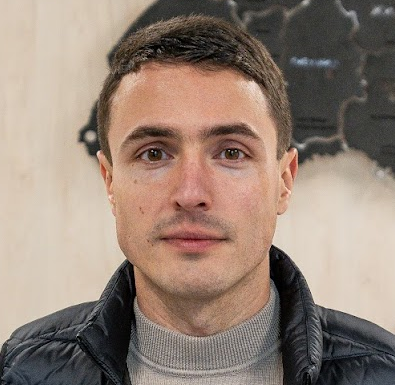
Serhiy Kovalchuk
"This project is a combination of a noble mission and economic aspects. We understand that it is a tough time for the plants — they need to continue working and survive. At the same time, it is important to motivate international donors to support Ukraine even after the war is over. That is, we need to think about long-term support models that will be more sustainable, stable and involve people themselves in the process. That's why we have developed a mixed model of humanitarian aid," says Kovalchuk.
How does it work? There is a card of the Social Centre. Its distribution is supervised by the partner organisation “Ray of Love” («Промінь Любові») in cooperation with the Korosten City Administration. Only socially vulnerable citizens can receive it. They need to contact a social partner and register.
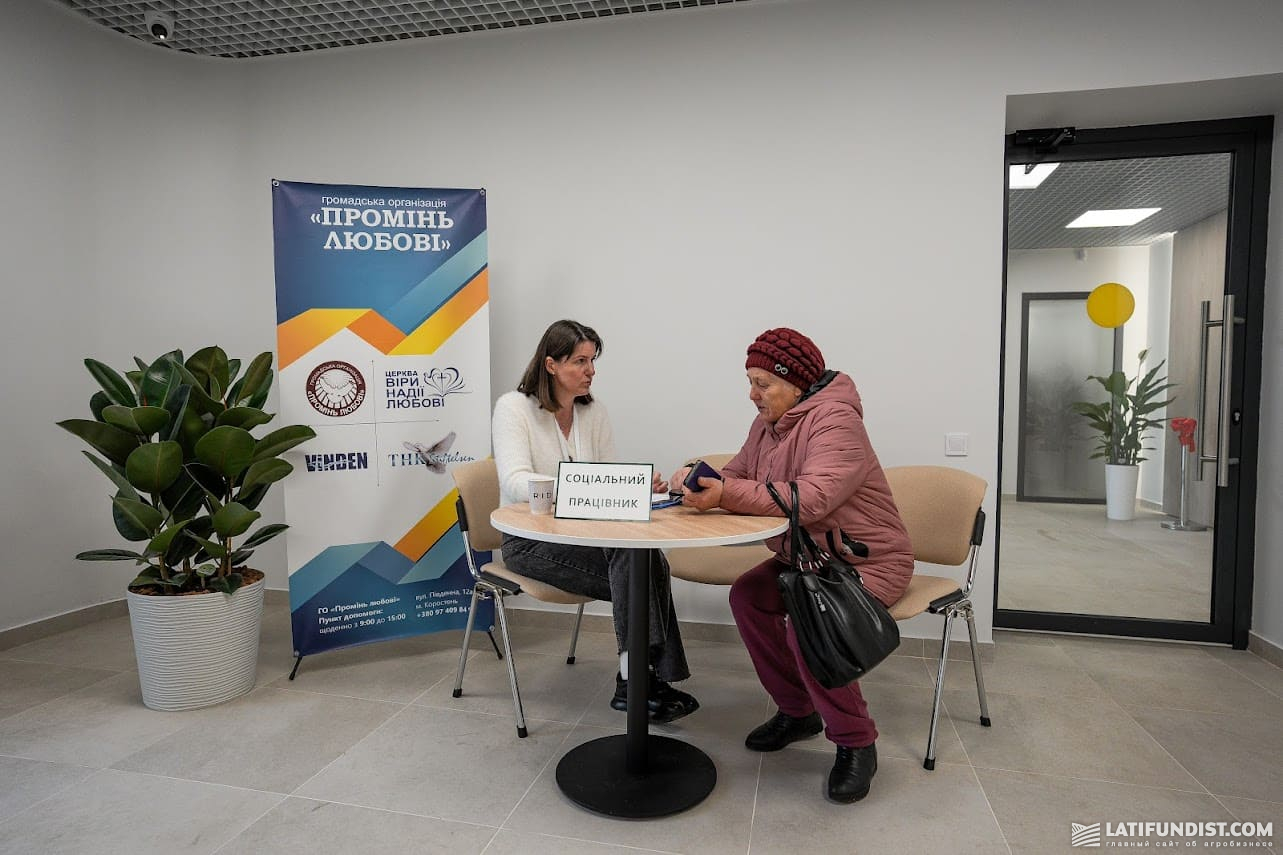
The card is used once a month to buy a 12-piece grocery kit worth UAH 363 (apx. US$ 8.71) at the Social Centre, as well as to buy canned food and household chemicals under the RIDNE brand at discounted prices.

Serhiy Kovalchuk
“So, people don't get used to free aid, but they can buy quality products 30-50% cheaper than in regular stores. This allows them to spend saved money on education, healthcare, etc. Besides, Ukraine's economy is supported — food factories and agricultural enterprises operate, and people stay in their towns and villages,” explains Kovalchuk.
The model of such a social centre can be tailored not only for crisis regions but also for developed countries, such as the United States and the United Kingdom, Mike Penrose adds. In his home country, socially vulnerable citizens receive food from so-called food banks. But most of those foods are not from local producers.

Mike Penrose
“We will not end poverty if we simply import food from abroad. Social centres are meant to support local producers, create jobs and promote economic resilience,” says Mike Penrose. “So I will do everything in my power to help RIDNE scale this project and expand it beyond Ukraine.”
RIDNE Ecosystem
Since its establishment, the consortium has been operating on the RIDNE Ecosystem model (from fertiliser and seed supply to processing and delivery of products to people in need). Today, the ecosystem includes 11 processing plants and 25 farms (compared to only five in 2023). Most of them have a land bank of 100 to 500 hectares, but there is also a cooperative of eight farmers, each of whom cultivates 5 to 10 hectares.
Humanitarian funds order a year in advance, allowing the consortium to plan in advance. And close relations with farmers ensure a flexible response to their needs. For example, some farmers will be receiving seeds and UAN with inhibitors, and in March they will be applying ammonia in their fields.

Serhiy Kovalchuk
"We provide our partners with high-quality seeds and fertilisers so that they grow a good harvest and, consequently, get a favourable price for their crops. We are constantly expanding the farmers network. If they manage, they stay in the consortium," explains Serhiy Kovalchuk.
How work with processing plants organized
The partners' processing capacities are currently sufficient, and there are no plans to increase their number. Among them is the Grocery Factory (TM Zhmenka), a producer in the RIDNE ecosystem since the first day of its operation. It produces cereals and sugar for the consortium.
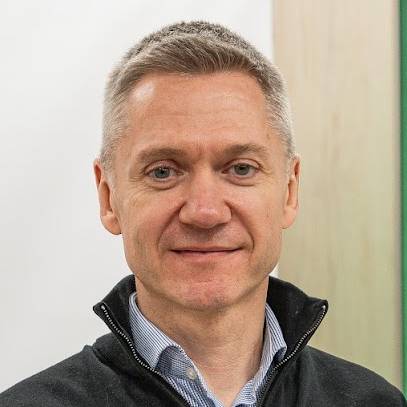
Oleksiy Shkabura
“The primary objective of this humanitarian project is to secure a consistent supply of products. That is why we are funded in advance. This means we can make timely purchases of raw materials from RIDNE farmers, who also receive support from the Consortium. Farmers in turn can set the best prices. We also build up warehouse stocks and follow a strict shipment schedule. We also have a separate warehouse for the Consortium's products, which is fully automated to reduce the time it takes to load trucks,” says Oleksiy Shkabura, owner of Zhmenka.
The traditional retail segment has shrunk significantly since the start of the full-scale war, the processor says. Cooperation within the Consortium helped to preserve the plant, production volumes and jobs.
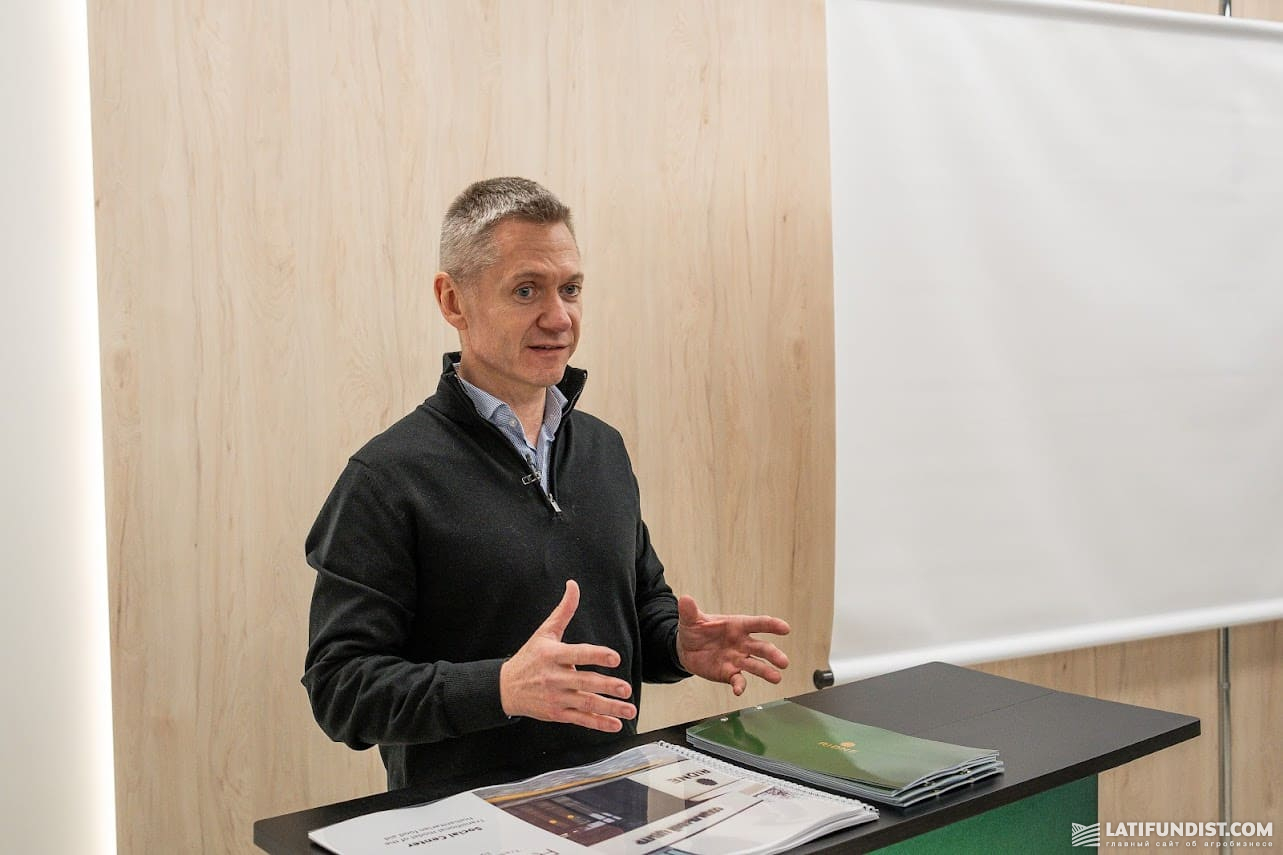
Participation in such humanitarian initiatives has a positive impact on the company's reputation, adds Oleksiy. It is particularly important when receiving funding from international donors. For example, last year, Zhmenka won a grant from the EU to build a buckwheat groats plant.
Upscaling the Social Centres project
The RIDNE consortium ventured into creating a pilot project at its own expense to demonstrate to potential partners the model and its effectiveness in a new approach to humanitarian and social assistance to Ukrainian communities. Taking risks in pilot projects is the RIDNE philosophy.
This operating model provides international donors with transparent, personalised statistics about users and their needs, explains Andriy Negrych of GEM. It also takes into account the interests of all parties. For example, it does not force aid on everyone but targets those who actually need it.

Andriy Negrych
“We are closely observing the RIDNE experience. We are studying all the achievements and possible shortcomings so that in the future when the issue of implementing this model on a wider scale arises, it will be as effective and adjusted to specific conditions as possible,” adds Andriy Negrych.
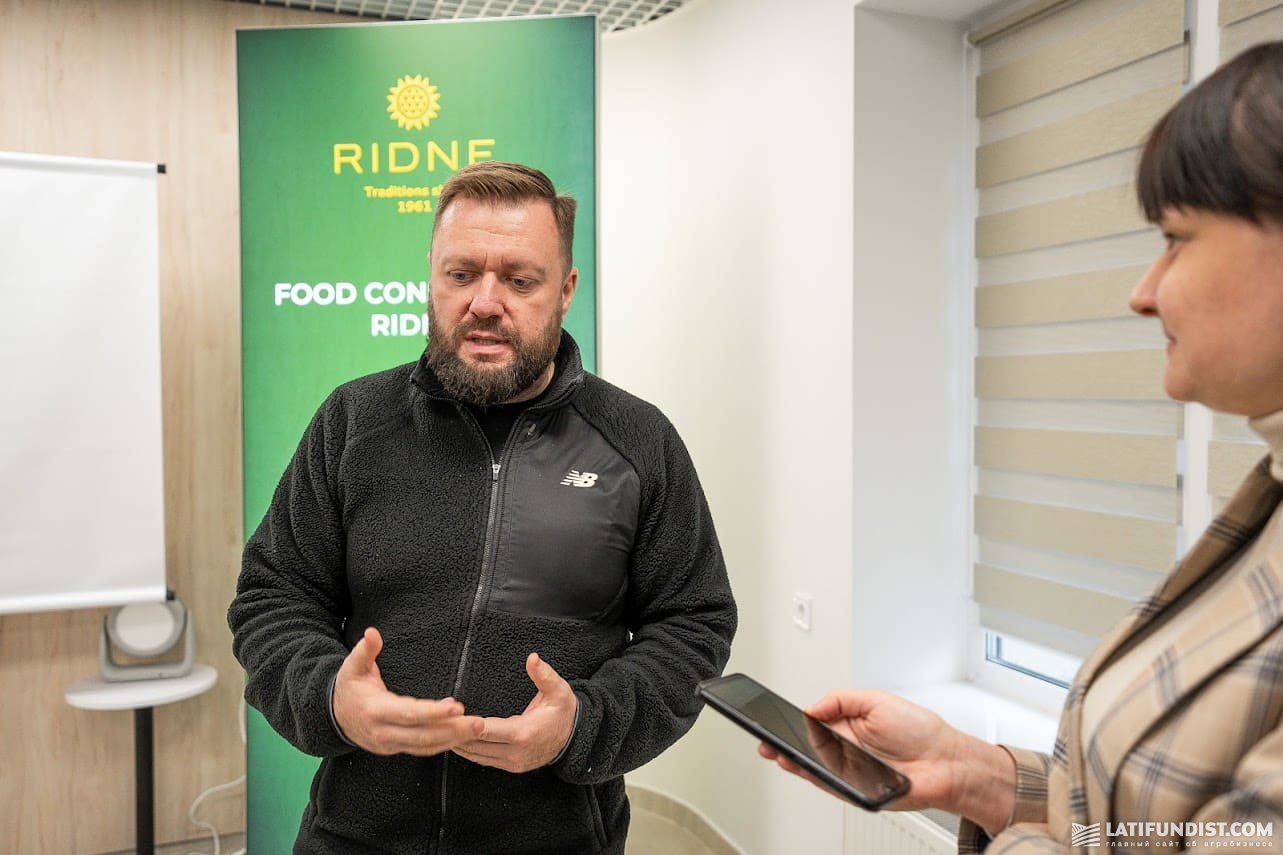
One more integral part of the project is the visiting trade. It is aimed at residents of remote settlements in the Korosten community. The principle of its operation is similar to that of a social centre: a person receives a Social Centre card and uses it to buy food at a special price once a month (as scheduled).
Serhiy Kovalchuk says that the Korosten Social Centre is to become a training hub for the project. It is planned to host delegations, demonstrate the work of the new model of humanitarian aid and train specialists. RIDNE sees the further development of the project in the creation of ‘social modules’ — compact social centres that can be quickly scaled up throughout Ukraine.
The African mission and beyond
Mike Penrose and RIDNE are longtime friends. They are currently working together on an export project to help the consortium's producers reach international markets.
His FuturePlus platform has been guiding the consortium in implementing sustainable production methods since late 2023. The platform analyses activities by key criteria such as climate impact, environmental impact, economic sustainability, diversity and inclusion, and social responsibility.

Mike Penrose
“RIDNE uploaded all the required data to the FuturePlus platform, then our specialists analysed and verified it. We improved some aspects, made adjustments, and this process is still running. Our cooperation has even come to a new level — we now have an office in Ukraine,” says Mike.
He adds that it is crucial for European consumers that products meet high standards of quality and environmental friendliness. That is why it is important to involve Ukrainian agribusiness in sustainable growth.
Related story: Ukrainian Canned Food, Pasta and Sugar for Ghana. What Markets Can Our Agricultural Products Compete for in this Country? Interview with the Chairman of the Agricultural Committee of Ghana
In terms of entering foreign markets, last year RIDNE started working on a project to supply humanitarian kits to Ghana. In autumn, they sent the first test batch containing canned vegetables and meat, vegetable oil, sugar, pasta, peas, condensed milk, etc. In Ghana, a local charity is supplementing these kits with regional products such as cocoa, corn grits, peanuts and cashews.

Serhiy Kovalchuk
“This ensures not only relief but also support for both Ukrainian and African producers, which is a major concern for international donors. Equally important, this activity does not compete with local commercial enterprises in Ghana. RIDNE receives requests from international funds, which guarantees stable sales and sustainable partnerships,” Kovalchuk says.
The consignment has already arrived in Ghana and the authorities will start its distribution in mid-February. In the future, RIDNE expects to intensify cooperation. For example, the vegetable oil included in the kits will be packaged locally in Ghana. The concept is clear: this should stimulate the development of local processing and create new jobs.
Natalia Rodak, Latifundist.com


